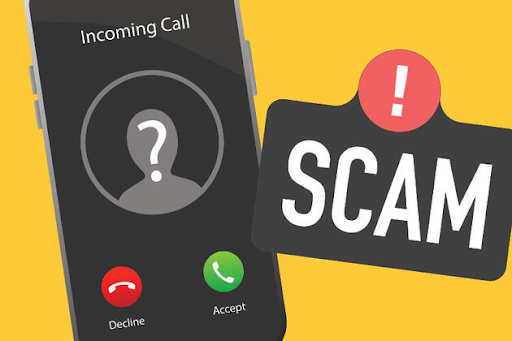Marketing
Stay safe from scam calls

It’s no secret that marketing agencies receive a lot of scam calls. This is especially true for agencies that work with small businesses, as scammers know that these businesses are more likely to be vulnerable to their schemes. While there are many different types of scam calls, there are some commonalities between them. Here are four tips to help you stay safe from scam calls.
- Be suspicious of unsolicited calls or unfamiliar numbers. If you don’t know who is calling, don’t answer the phone.
- Don’t give away personal information. Scammers will often try to get your personal information like your Social Security number or credit card number. Never give out this information over the phone, no matter how convincing the caller may sound.
- Hang up if the caller is pressuring you for money or personal information. A legitimate company or person will never do this.
- Report suspicious calls to the Federal Trade Commission (FTC). By doing this, you can help warn others about potential scams and make it more difficult for scammers to operate successfully. It’s important to remember that if something sounds too good to be true, it probably is.
Scam calls are an unfortunate reality of everyday life. They come in various forms, but the unifying theme is that those behind the calls are trying to get you to give out personal information or money in order to receive something of supposedly great value. Common examples include promises of free vacations, investments that will make you rich overnight, and off-brand security measures meant to protect your personal data. In most cases, it pays to be extra vigilant when it comes to recognizing such offers as fraudulent. Remember: if it sounds too good to be true, it usually is! It’s important to research any potential offers being made before committing. If you cannot find credible reviews about a business or offer online, then it’s probably too good to be true. Also, pay attention to requests for your personal information such as credit card numbers or addresses; these should only be given in order for trustworthy purchases. By keeping up with these simple guidelines, you’ll save yourself from being deceived by scam callers and their false promises.
What to do when a scam caller calls?
If you find yourself on the receiving end of a scam call, there are a few steps to take. First, remain calm and don’t panic – keep in mind that scammers often use intimidation tactics to get what they want. Second, hang up immediately – this will not only help protect your personal information but will also stop the caller from continuing to harass you. Finally, report the call and any relevant information to the Federal Trade Commission (FTC). By doing this, you can help alert other potential victims of scam callers and make it more difficult for scammers to operate successfully. Remember, if something sounds too good to be true then it usually is – stay vigilant and protect yourself from potential scammers!
Conclusion
Scam calls are unfortunately a common occurrence in the digital age. By following the tips outlined above, you can protect yourself – and your business – from falling victim to malicious scam callers. Do your research before giving out any personal information or money, and be sure to report suspicious calls to the FTC. Staying safe from scam calls requires vigilance and attention to detail. By following these simple tips and staying aware, you can ensure that your information remains secure and your wallet stays full.





















































